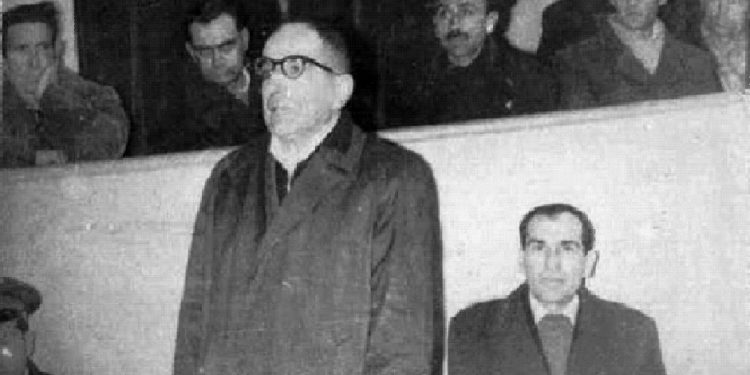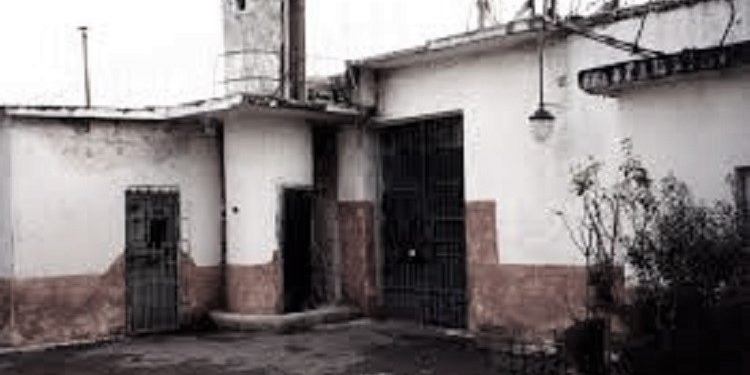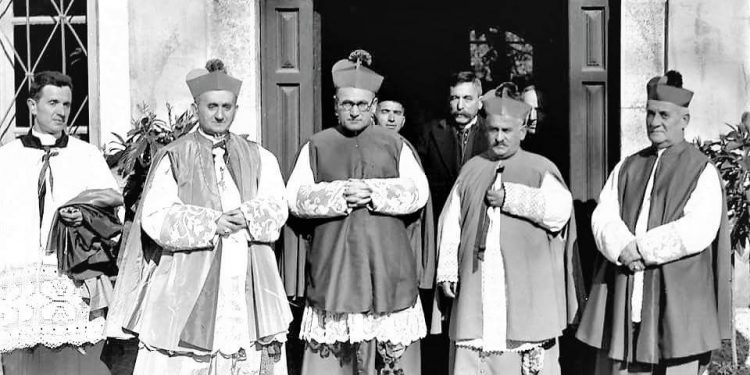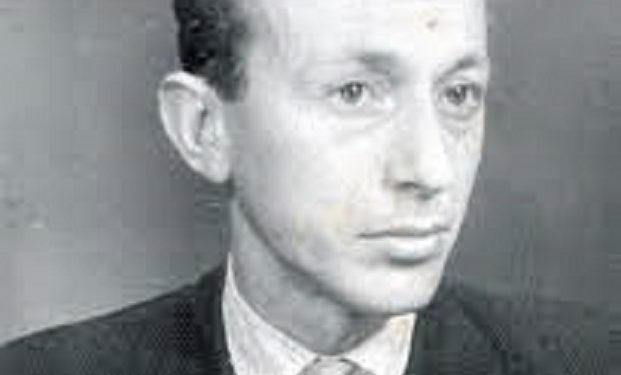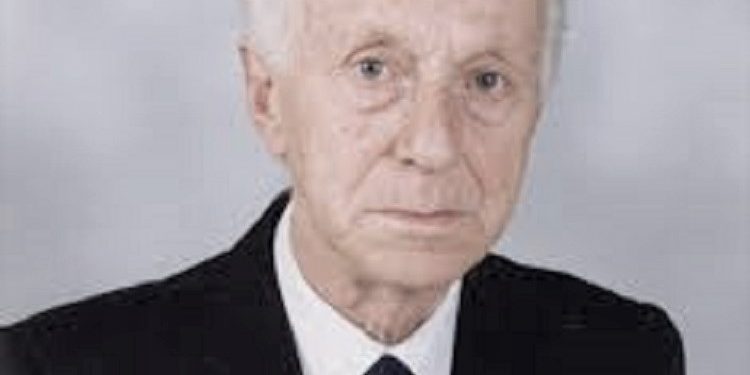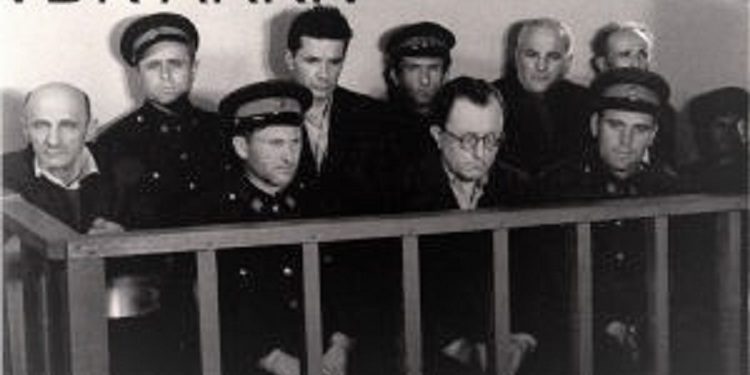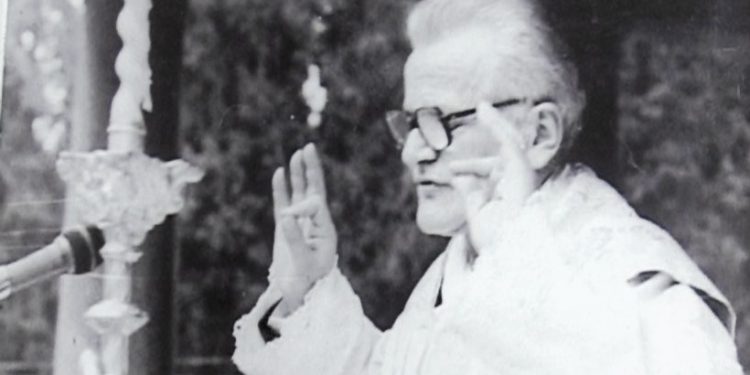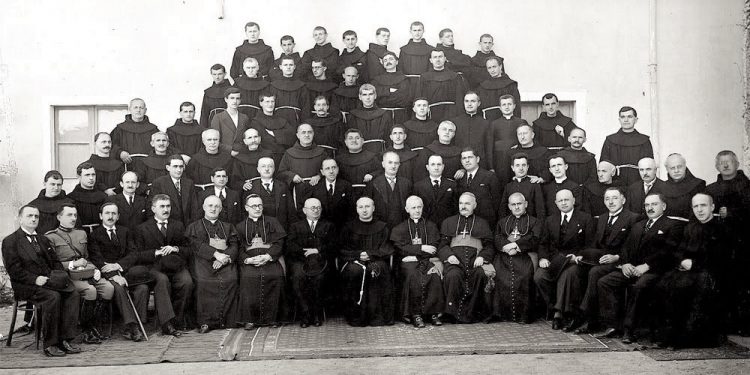Dashnor Kaloçi
Second part
Memorie.al publishes the unknown memories of the intellectual Uran Kalakulla, former political prisoner, who suffered for more than 21 years in the camps and prisons of the communist regime of Enver Hoxha, after in 1961, he was arrested, charged that together with a group, which also included Pjetër Arbnori and Tanush Kaso, had wanted to form a group with a European social-democratic tendency, where as a result, he was sentenced to 22 years in prison, which he suffered mainly in prison. of Burrel, from where he was released in 1992 and interned in the village of Kryevidh in Kavaja, until 1988. Unknown memories of Mr. Kalakulla, author of several books such as “Verses in Handcuffs”, political essay “Albanianism and its Europeanist tendency”, monograph “Arshi Pipa, man, life” and works, as well as the autobiographical book “Twenty-one years of communist imprisonment”, of written after the 1990s, where he describes in detail some of the Catholic, Muslim and Orthodox clergymen he had as accomplices during his sentence in the communist regime’s camps and prisons, such as: Father Konrad Gjolajn , Dom Nikolë Mazrekun, Father Gegë Lumën, Dom Ndoc Nikajn, Dom Simon Jubanin, etc.
The well-known intellectual Uran Kalakula, who suffered for more than 21 years in the prisons of Enver Hoxha’s communist dictatorship, in his memoirs written both during his sentence and after his release from prison, devoted a special place to him. Catholic, Orthodox and Muslim clerics, who throughout the period of the communist regime, were massacred in the most barbaric way by the ruling regime. Regarding the stoic attitude of these clerics in communist prisons, there was also this article which we have taken from the memoirs of Mr. Kalakula, published in his book “Twenty-one years of communist imprisonment”, which was published in 2001, shortly after he had passed away.
-Memories of the former political prisoner, Uran Kalakulla-
“Between them to separate the guilty from the innocent; just as the elders of a village once entered our mountains to establish peace among the people, to administer justice among them. And, in this case, Father Gega was the true representative and correct of the Kanun of Lekë Dukagjini. Although he was poor, that they seldom sent any All or someone came to the prison door, he was very generous and did good without being heard, as befits a nobleman of Father Gegë Luma was also a great patriot. Hatred of these wicked people, the blind tools of Satan’s evil, and his indignation erupted, forgetting in those moments that he was a priest and a servant of the word of God a real Albanian would die . He was released before me. When we parted, I felt a great void in my soul. And we never saw each other again. But, at the core of my heart, I still keep alive the image of that good old man, who had two very great values in his being, which I would like to emphasize once again: a man of God and a worthy son of our long-suffering nation.
With Dom Ndoc Noja
A couple of years or three before my release, I felt in the same room with another Catholic clergyman, also from Shkodra: with the good old man, almost angelic, Dom Ndoc Ndoja. Dom Ndoci had studied Theology in Genoa, Italy and, like Father Gegë Luma, he had also completed two faculties. In addition to theology, he had also studied geography. But the coward had completely forgotten about this discipline, because all his life he had been a priest in the village of Bilaj in Fushë-Krujë. In fact, he excelled at university. Therefore, a couple of American Catholic prelates had insisted on persuading him to take him with them to their country as a priest. But Dom Ndoci had not accepted in any way. Contempt for the comfort and wealth of life in America, he had told the Americans that he had changed his mind: “he was born in Albania and wanted to die in Albania, helping only his compatriots to walk in the way of God”! From Genoa and Bilaj and in every small and poor village of his country. The Albanian priest was the brother of one of the five heroes of Vig, Ndoc Mazi. He had a brother from his mother, but with another father. Thus, two brothers in two completely different streets: Ndoc Mazi with communism, Ndoc Ndoja with Christianity! And, while Dom Ndoci lived in the simplicity and poverty of a village like Bilaj, his mother in Shkodra, lived in his own house, with a pension good that Hoxha’s communist government had given her as the mother of the “People’s Hero.” sacred, the car that made osts, the gilded cross of the church, kelshe the same with the incense in it and was sheltered to his mother, to share the bread together.
The arrest of Dom Ndoci
But did Dom Ndoci stay without following the rules of religion? No way! Thus, secretly, in a room of his mother’s house, of course, with her full consent, the old priest was already continuing to “bring mass,” with his mother’s faithful companions. But, of course, even this secret work fell into the ears of the government, but Dom Ndoci was spared as long as he had his mother alive, because he had taken her to the tribune on holidays for the dictator himself. So, until then, he had not kept his sejmen from Shkodra from touching his son. When his mother died, the old priest remained ill. Meanwhile, someone was secretly bringing him something to eat. An old woman dared to go and confess her sins and bring something to her bohçe hidden under her jacket. This is how the “secret” priest continued to live. And when he went to his mother’s grave, he made up something like a cross and put it on top of the grave. Front activists, who did not even leave the dead alone, removed the cross. Then Dom Ndoci, made the cross to his mother on the grave with white pebbles, gathered in the gravel of the river Kir. The frontists also broke this kind of mosaic, Dom Ndoci repaired it again, not stopping at the same time leading masses and distributing bones. But “oppression” finally defeated him and the Security handcuffed him.
With Dom Ndoci, in Burrell Prison
He was sentenced to prison, and on a cold winter day, he was taken to Burrell Prison, straight to the room where I was staying. Dom Ndoci was a short man, round-faced, white-haired, with two sweet eyes, where his angelic kindness was beautifully displayed. In no case did I see him get angry or show the slightest sign of nervousness. On the contrary, he was always gentle, cheerful, and never raised his voice when he spoke. He also liked jokes and, when he spoke, never raised his voice. He also liked jokes and, when it came to humor, he laughed heartily. Apparently, he was born specifically to become a man of God; wise, obedient, taciturn, quiet, simple in everything, very kind, merciful, ready in any case to help you and worry about the other’s troubles. I have known many kinds of people in prisons and camp-prisons, but I have never encountered one like him. Even among the clergy. As I said before, Father Konradi was serious and gloomy, almost like Dom Nikolla and Father Gegë Luma, with a body like Dom Ndoci; but while he cast the shadow of the cockroach highlander, Dom Ndoci was, in the true sense of the word, exactly “the sheep of God.” Life, without the practice of religion, meant nothing to him. He suffered in the spirit that he was not allowed to do so because he called it his first duty in life. He lived, as he told me, only to serve the church, so that people could get as close to the Lord as possible. For him, nothing else had either meaning or value. And he always lived in the hope that one day he would come again, with his resurrection, when the religion of Christ would re-emerge, free from every obstacle, from every persecution. “While the religion of the Lord Christ, from its inception, won in imperial Rome, which was in its time a superpower, as they say today, there is no doubt that it will still win over today’s wickedness that, as “The eclipse of the Sun has darkened our lives. Eclipses come and go, but the church of God remains and will remain until there is life and humanity on our planet.” But even Dom Ndoci, with all his holiness, necessarily had some human weaknesses, which are understandable to every being with mind and soul. So he liked good dishes, some grilled meatballs, some pieces of bacon or some dessert. And when I teased him in this direction, he would pass the saliva, shrug his shoulders and smile. It was not his fault, desolate old man. With that prison face, who would not have thought of a bite to be? But especially he died for coffee. And when it happened that I had, – either they had brought me home, or a friend who had a meeting with the family had borrowed it from me, – I would look at Dom Ndoci, take out the cups and the jug, make a fire with the newspaper “Zeri i “People”, turning this into a lighted pipe or torch and boiling that little bit of coffee, which we both missed so much: he as her big jerk, but me too, moreover as a smoker big. Doesn’t the Turk say: “Coffee without tobacco, like a Turk without an imam”?
What was Dom Ndoci telling me?
I teased Dom Ndoci a bit for theological work, especially for the holy trinity. Or for the philosophy of the great theorists of Christian philosophy, as I have pointed out above, St. Augustine and St. Thomas. But the holy elder had forgotten much. And hearing me about this work, he wondered how it was possible that I knew such works and I had not yet become a Christian. It was clear that he perceived the world with only one color, only under one flag, that of Christianity. We parted with Dom Ndoci when I was released and left him in jail. But unlike many other elders, with whom I was not fortunate enough to meet again, already out of prison, without looking…! Dom Ndoci and I met again, in the corner of a garden in Shkodra, quite by chance. We hugged with longing and love and he instructed me to be careful that “the communists are very dirty; they put you back in prison, without any guilt”! Years and I no longer see that good old man. “/Memorie.al
The next issue follows




